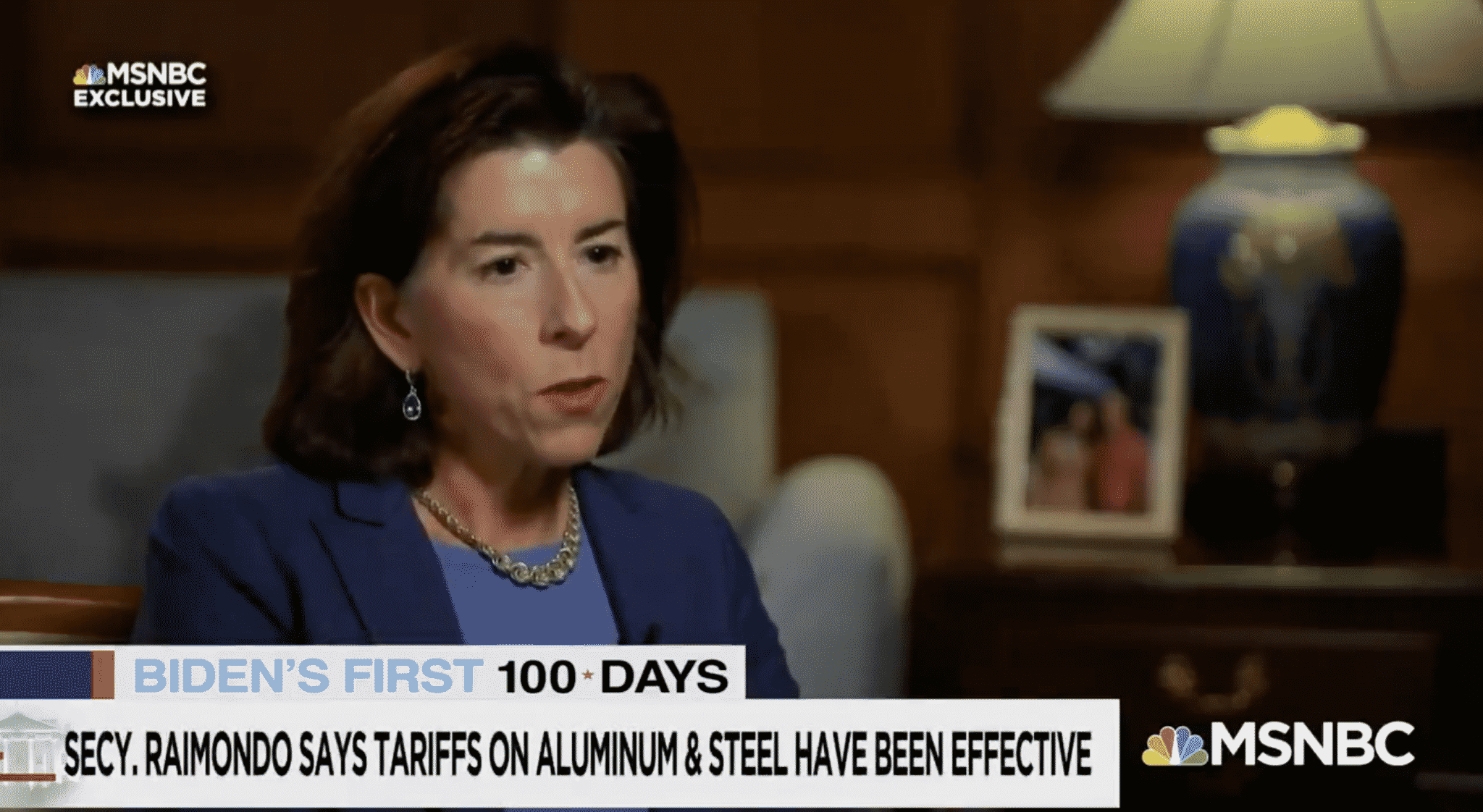Officials in the Biden administration are moving to reverse many of former President Donald Trump‘s policies.
However, Commerce Secretary Gina Raimondo told MSNBC that Trump’s tariffs on steel and aluminum imports were effective.
Host Stephanie Ruhle asked Raimondo if the Biden administration plans to keep Trump’s tariffs in place.
She responded, “Those tariffs have been effective. The data show that those tariffs have been effective.”
“And I think what President Biden has said is we’re going to have a whole-of-government review of all of these policies and decide what makes sense to maintain,” she added.
Watch the video below:
.@MSNBC Exclusive: "Chinese telecommunication companies, their behavior is a threat to American economic and national security. We are going to use the entities list to its full effect." –@GinaRaimondo pic.twitter.com/WkVjt8ztcw
— MSNBC Reports (@MSNBC_reports) March 4, 2021
In 2018, Trump imposed tariffs on aluminum imports from every country except for Canada and Mexico, a move he cast as a national security decision.
“A strong steel and aluminum industry are vital to our national security, absolutely vital,” he said at the time, adding, “Steel is steel. You don’t have steel, you don’t have a country.”
Trump later expanded the tariffs to include the majority of goods imported from China.
A study by economists at the Federal Reserve found that Trump’s tariffs on Chinese imports did provide some benefit to American companies. However, it said that the benefits were outweighed by costs of paying for tariffs.
While Trump repeatedly claimed that China was “paying for the tariffs,” CNBC noted that the tariffs were paid by companies that imported Chinese goods. Companies in the U.S. would then raise the prices of goods to compensate for the costs of the tariffs.
Additionally, while the import of goods from China dropped after the tariffs were imposed, the export of U.S. goods to China also dropped.
Finally, The Washington Post notes that the tariffs “were just enough to ratchet up trade tensions with China, but not enough either to force the Chinese government to shift course on unfair trade practices and intellectual property protections, or to sufficiently push American and multinational companies to shift resources to reorient their supply chains to the United States.”

























 Continue with Google
Continue with Google